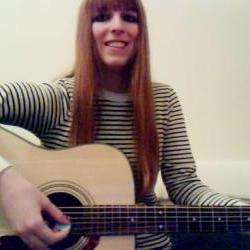The third night of New Opera Days Ostrava was the lengthiest and most formal night of the festival, taking place in the Antonín Dvořák Theatre and consisting of a double bill of two hour-long operas. Petr Cígler's Protracted Sinuous Movement of a Longitudinal Object, a NODO commission, was presented in its world première (in Czech with English surtitles), following which Richard Ayres' No. 42 (In the Alps), originally in English, was given its staged première with Czech surtitles. Mr Ayres has devoted himself full-time to composition ever since enrolling in Morton Feldman's Darmstadt summer courses in 1986, while Mr Cígler is a chemist and molecular designer by trade, and only composes 'made to measure compositions' with the cooperation of performers and festivals. Mr Ayres's opera incorporates animal sounds and a silent narration, while Mr Cígler's opera incorporates narration (about a silent rattlesnake) that is spoken and even occasionally rapped. Despite these differences, the two operas explore similar themes, such as unconventional modes of storytelling and myth, that have been explored throughout the festival.
Witnessing Mr Cígler's opera was one of the most discombobulating musical experiences I've had in recent memory. His score in combination with the libretto of Petr Odo Macháček weaves together cryptic sung phrases with a spoken narration that, on the surface, is clear enough. During the enigmatic opening scene, the singers envoiced the words of the title as they strode through David Bazika's bare yet striking stage design. From the pit, the Ostravská Banda produced a string of motoric, ominous sounds, with trumpet drones and percussion dribbles evolving into a fascinating complex texture. As speaking man 1, Jiří Šimek was spot-on from the moment he began his narration, standing in the midst of the audience: “One day a rattlesnake joined our household. We did not rejoice at this news at first. The house is small.” His deadpan delivery was absolutely enthralling, and as the opera progressed his longer passages took on the form of a poetry slam or rap, accelerating to blistering speeds (but of course he never missed a word).
The opera continues the theme of doubles (e.g. Ligeti's pair of Aventures, Kotík's William William), with Mr Cígler writing that he was interested in “interactions between slightly displaced or slightly doubled subjects or objects – voices, sounds, people, situations, etc”. As such, many of Mr Šimek's spoken phrases were echoed in song form by the vocalists on stage, who themselves were performing in pairs. Aneta Bendová and Eva Marie Gleslová were excellent as singing woman 1 and 2, clad in matching red dresses and always standing shoulder to shoulder. Slightly less impressive, but still fine, were Jovtĕch Semerád and Josef Škarka as singing man 1 and 2. As speaking woman 1 and 2, Zdeňka Brychtová and Lenka Chadimová provided further comic relief. In a memorable scene, the pair (clad in matching pink dresses) ducked underneath the barbed wire inexplicably surrounding the orchestra pit, perched on the edge next to conductor Ondřej Vrabec, and sipped cups of tea while earnestly describing their recent conference preparations.
Mr Vrabec led the musicians through a score that would be worth listening to even without the accompanying visuals and narrative content. Although certain passages, particularly from the brass, sounded more faltering and uncertain than on the first two nights, the occasional rough moment is to be expected from an ensemble performing five operas in four nights. The timbres of Mr Cígler's score include bongos, anvil, two spray bottles (one high, one low), amplified planks rubbed with sandpaper, electric guitar, as well as extended techniques from the more 'traditional' instruments. While sometimes sounding overamplified, the musicians expertly carried out the elaborate textures, frequent meter changes, and slightly varying repetitions. The Banda sounded even more convincing in their delivery of Mr Ayres's opera following the intermission. Conducted now by Rolf Gupta, they summited the Alpine peaks of Mr Ayres' three-act melodrama – the composer describes his music as sounding like “a circus band on drugs” – with ease and enthusiasm. The violins in particular sounded wonderful throughout the performance.
Mr Cígler's opera employs the wry symbolism of a snake in the house to explore concepts of violence, communication, and action vs inaction. Mr Ayres' opera uses the symbolism of language acquisition to explore the concept of myth creation and impossibilities that can occur to us even within our limited reality. The story concerns a mountain girl who learns to speak from a collection of Alpine creatures including goats, a nightingale, cicadas, owls and so on. Eventually she encounters the young Bobli, who himself has learned to communicate through his trumpet playing. Presented as a take on an early silent film, the words of the narration are presented soundlessly as surtitles. In this staged production, directed by Jan Horák and Michal Pĕchouček, the Ostravská Banda was featured on stage alongside a tree stump throne and various other props and effects, including at one point a giant red flag draped across the orchestra pit. As Bobli, János Elmauer was great, though admittedly slightly overshadowed by the brilliant Lydia Brotherton as the girl. Ms Brotherton's bleating, cooing, growling, and most of all singing sparkled with the unassuming poise of a gymnast after sticking a difficult landing.


